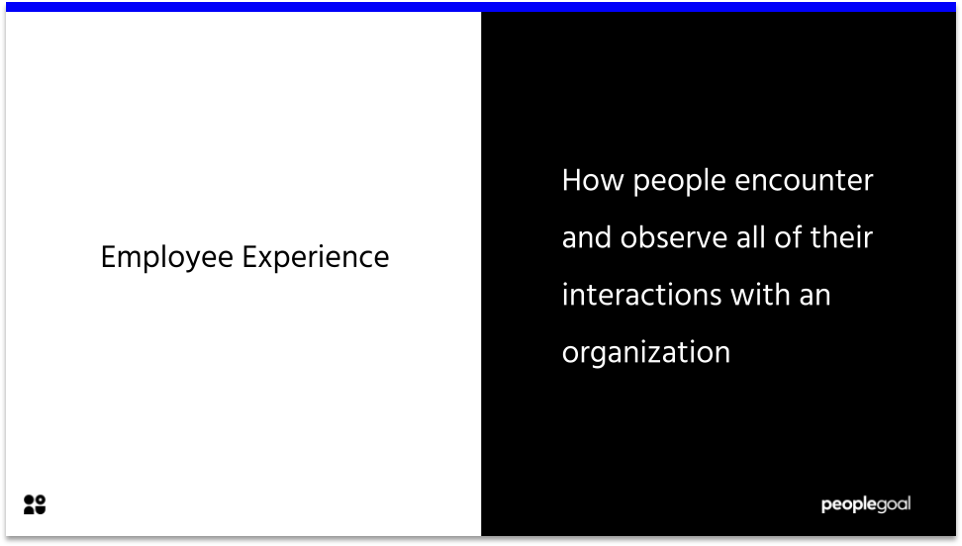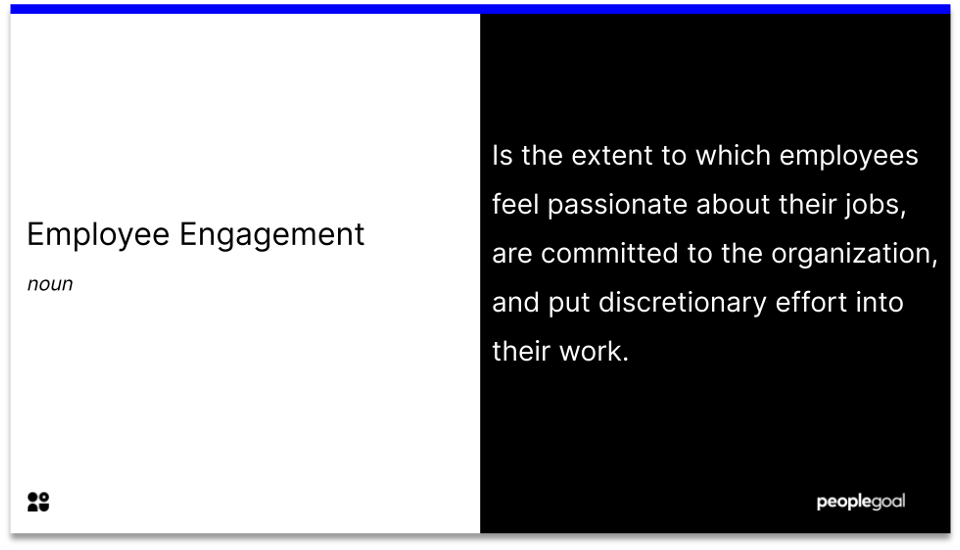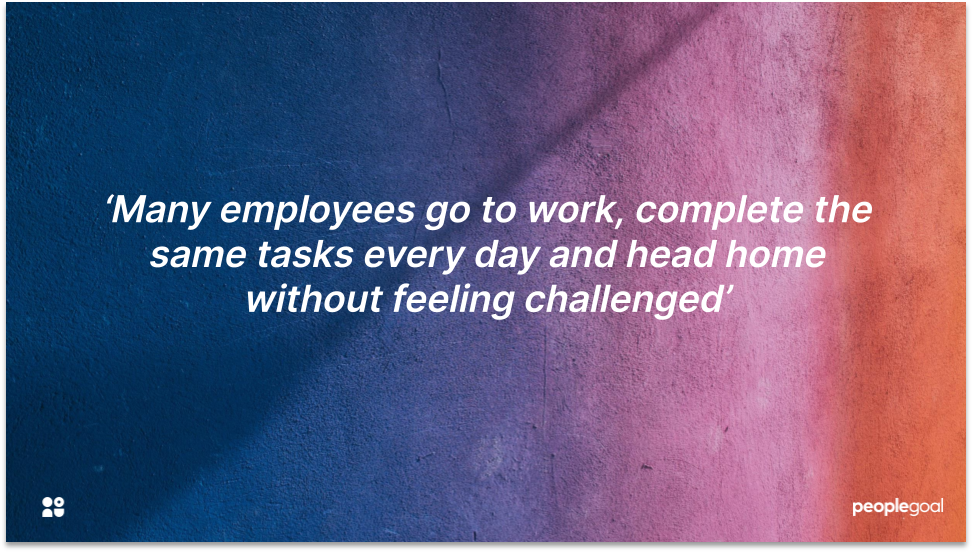How to deal with negative feedback
Employee feedback is an integral part of employees’ professional development and the organization’s continuous improvement. However, feedback at work is a double-edged sword. Whilst we all love to receive positive feedback it can be hard to handle criticism gracefully. Constructive criticism is a fundamental part of learning and growth, and whilst we might not like to hear about our imperfections, 92% of employees agree that if negative feedback is delivered appropriately, it is effective at improving performance.
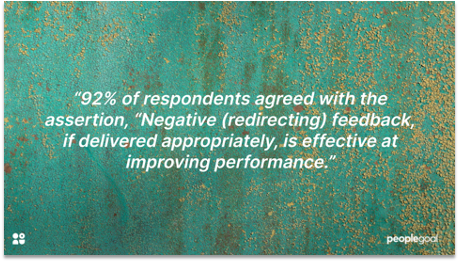
Receiving negative feedback is something that happened to all of us at some point. What we have not all experienced, and I can look back on previous personal experience, is the best way to deal with it. How do you respond to someone looking upon your work negatively? What steps are best to take? No one likes receiving negative feedback, but it is there for our benefit.
Despite our best efforts, it can be hard not to take bad feedback personally. But it is crucial to develop strategies to help manage and maintain your emotions when the time comes, and ensure that you take onboard the critiques and use them to improve your performance.
The way you manage criticism at work can help you stand out from the crowd, and those most adept at taking on constructive comments are more likely to go further in their career. Dealing with negative feedback effectively demonstrates excellent teamwork, communication and leadership skills. Now let’s look at some of the steps you can take to best respond to and get the most out of negative feedback.
10 Steps to Help Deal with Negative Feedback
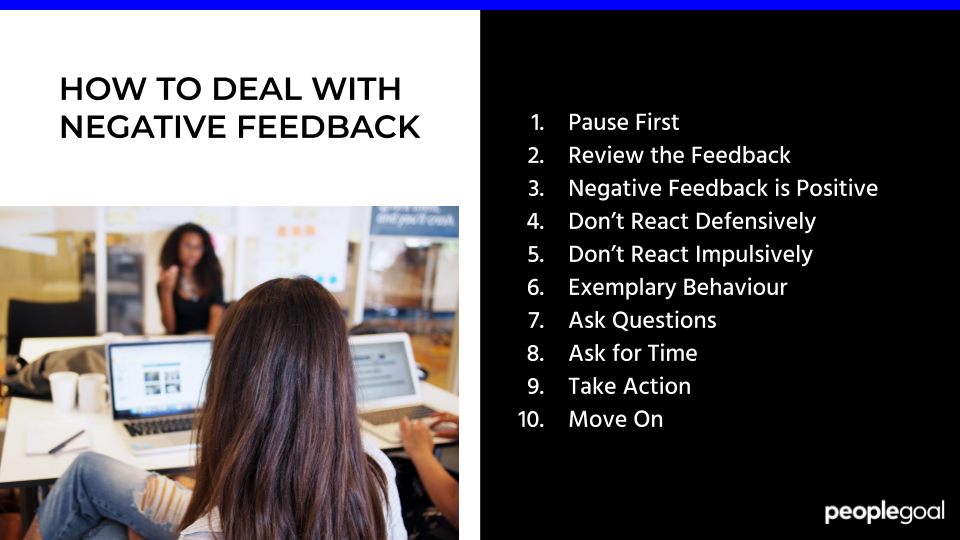
1. Pause First
This one happens to us all, so don’t feel like you are on your own. The natural reaction to any criticism is to respond defensively. This is true not just for workplace-based feedback. Now, we aren’t telling you not to respond defensively, as this is really hard to control. However, what you can control is pausing.
Pause when you hear the feedback. Listen to it. Take a breath. This will give you some time to fully comprehend the feedback you have been given, as well as compose yourself before responding. Once you have composed yourself you will be able to respond in a more calm and measured way.
2. Review the Feedback
Evaluate the feedback as objectively as possible. This will help you get the most out of your feedback. Using tools like 360 feedback software can streamline both the collection and analysis of feedback. So, how do you do it? Firstly, listen to your reviewer. Ask for evidence and examples of the described behaviors, so that you can get more clarity on the feedback.
3. View Negative Feedback as a Positive!
There are so many reasons to view negative feedback in a positive light. Firstly, negative feedback means that your manager or supervisor cares about you. They want you to improve and they are motivated to see you develop. If they were not bothered, they would have given bland, neutral feedback – or not bother at all!
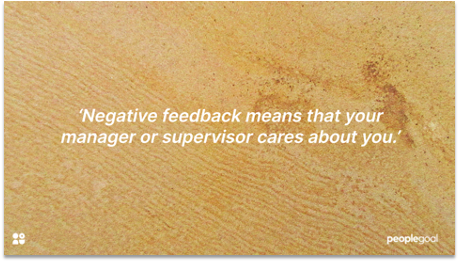
Negative feedback can be a real eye-opener. It’s great to hear positive feedback and be recognized but negative feedback helps you to identify areas which need improving. While it may be a bitter pill to swallow, if you want to improve you need to find out what you’re not so good at.
4. Don’t React Defensively
During a feedback meeting, it is likely that you might feel slightly attacked when hearing negative feedback. Whilst it is normal to react defensively, you have a choice in how you communicate with the other person.
Try not to respond with, ‘that’s incorrect’ or ‘no, you’re wrong’. Pause for a short-time, and come back with a measured response. Giving yourself time will allow you to process the feedback. It is rather easy to interpret comments in a way that they were not meant. Give yourself time to think, and respond in a calm and collected way.
5. Don’t React Impulsively
Receiving particularly negative, emotion-inducing or critical feedback is tough. You may want to react in the moment to defend yourself. In order to make feedback more effective and in order for you to look professional, try to avoid reacting impulsively when hearing critical feedback. Try to separate your emotions from your response, and think about how you would like to react if you were the one giving the constructive criticism.
6. Ask for Exemplary Behavior
If your manager has given you areas where you need to improve, ask for specifics. Ask for where you haven’t been up to scratch. Why weren’t you up to scratch in that area and how do you improve? It is important to request specific examples so that it is clear in your mind. You should also ask for exemplary behaviour in that area so you can give yourself a target to reach.
7. Ask Questions
Asking questions is particularly useful. It follows on from the classic saying, ‘if you don’t ask, you don’t get’. If you don’t ask questions, you won’t receive the desired benefits – and you won’t get the most out of your feedback. Here are some examples of questions you could ask:
- What areas aren’t I improving in?
- How can I get better at X?
- What do I need to get better at this?
- Who is an expert in this field?
- Can I work more closely with an individual to improve?
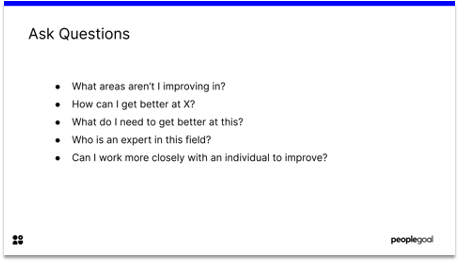
Asking questions eliminates the perception of defensiveness or impulsivity. Instead, questions allow you to pause, providing you with the opportunity to clarify and better understand your feedback.
8. Ask for Time
If you feel overwhelmed by the comments, or simply would like to reflect, ask for some time to review the feedback. Managers shouldn’t expect you to assimilate negative feedback and respond immediately. We aren’t suggesting that you ignore the comments, it is important that you respond to your manager quickly but you should be able to ask for time to respond appropriately, in order for you to properly assimilate the negative feedback.
Asking for time prevents you from reacting defensively or impulsively. It also conveys to your manager that you are taking time to thoroughly consider what they have to say. And for you, it gives you time to consider the validity and appropriateness of the feedback.
9. Take Action
Following on from the point that negative feedback is actually positive, you need to take action. Take accountability for the areas you need to improve. Own your prior actions and take action for the areas which have been identified as your weaknesses.
10. Move on
An important one to finish, try not to get hung up on the criticism. Do not get too down on negative feedback. Absorb the reasoning, take on board the lessons, implement actions to improve and move on more positive from the feedback.
Negative feedback is not easy to hear at first. And we aren’t saying it should be. However, negative feedback when provided correctly, has the potential to do a lot of good. We’ve tried to provide some steps to make sure you get the most out of the feedback if it is ever negative.
Want to read more on the topic of feedback? Check out some more of our resources below:
Ready to 3x Your Teams' Performance?
Use the best performance management software to align goals, track progress, and boost employee engagement.

